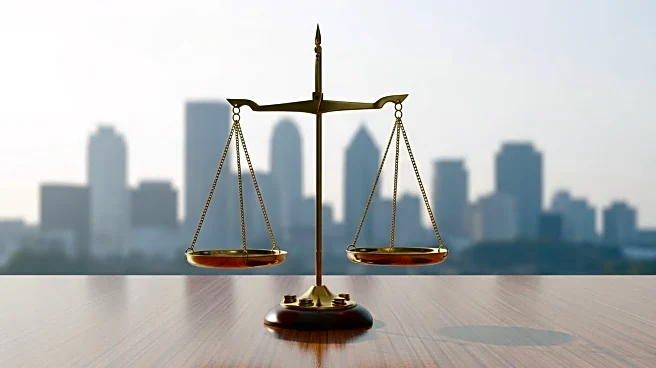What's Happening?
Zohran Mamdani, a candidate for New York City mayor, is actively engaging with Jewish voters to address concerns about his stance on Israel and antisemitism. Mamdani, known for his criticism of Israel and support for the Boycott, Divestment, and Sanctions movement, has been meeting with various Jewish communities, including Modern Orthodox and Hasidic groups, to reassure them of his commitment to their safety and well-being. Despite his controversial positions, Mamdani has promised to maintain police protection for Jewish events and has condemned antisemitism. His efforts come amid heightened tensions following recent attacks on Jewish communities and his primary victory, which has made him a front-runner in the mayoral race.
Why It's Important?
Mamdani's outreach to Jewish voters is significant as it highlights the complex dynamics of identity politics in New York City, home to the largest Jewish population outside of Israel. His candidacy has sparked debate over the role of foreign policy issues in local elections, particularly concerning Israel. Mamdani's positions have drawn criticism from some Jewish leaders and real estate developers, while others see his approach as a necessary dialogue. The outcome of this engagement could influence voter sentiment and impact the broader political landscape, reflecting shifting attitudes towards Israel among younger and progressive voters.
What's Next?
As the mayoral race progresses, Mamdani is likely to continue his outreach efforts to various Jewish communities, aiming to bridge gaps and address concerns. His campaign may face increased scrutiny from opponents like Andrew Cuomo, who is courting Orthodox Jewish voters and criticizing Mamdani's stance on Israel. The evolving political discourse around Mamdani's candidacy could influence future elections and policy discussions, particularly regarding antisemitism and community relations in New York City.
Beyond the Headlines
Mamdani's candidacy underscores broader societal shifts in attitudes towards Israel and the intersection of local and international politics. His engagement with Jewish communities reflects a growing need for political leaders to navigate complex cultural and religious landscapes, balancing diverse perspectives while addressing security and social justice issues. This development may signal a trend towards more inclusive and nuanced political dialogues in urban settings.










